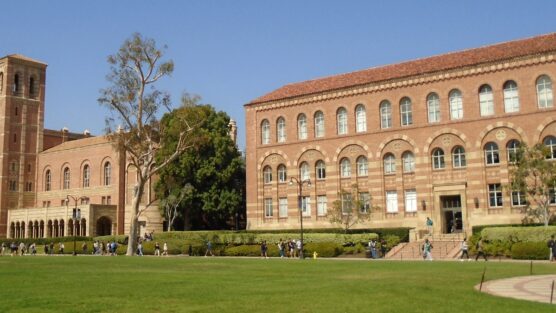Princeton University, a prominent ivy league college, has canceled its early action program for the 2020-2021 application cycle.
Will other schools follow? And how does this impact you if you’re applying to colleges this year?
Princeton Scraps its Early Action Program
Princeton announced that this year, there will be no restrictive early action program because of COVID-19. Instead, the #1 nationally ranked university will only be having its regular admission program. Princeton wants its applicants to be able to send in more information in their application and removing the early action program will allow applicants to do this.
Why Would Colleges Cancel Early Action/Decision?
It’s likely other colleges will follow Princeton’s lead and cancel their early action/decision rounds. Why would colleges do this?
- Colleges that do not want to go test-optional have to allow their applicants to take the SAT and ACT. These tests likely won’t be nationally or internationally available for all students until well into the fall. This means early action/decision is not an option.
- Colleges that do want to be test-optional want more info on their applicants. Because of COVID-19, junior year grades are not a great measure of a student’s grades or GPA because many classes became pass/no pass. This means colleges would like to see senior year grades and, as a result, must cancel early programs in order to see these grades.
Curious about which schools are test-optional and which aren’t? We have a blog and video on that!
Winners and Losers
So who benefits from getting rid of early programs, and who suffers?
Losers
- Legacy students, athletes, and children of donors. These students typically apply during early rounds and are given priority in admission. Now, they must compete within a larger pool of applicants. This doesn’t mean they won’t get the same preferential treatment they do in the early round, but they will now be compared with a larger group of applicants.
- Students who don’t like filling out applications. Some students apply early because they don’t want to fill out a ton of college applications. Now, they will have to definitely fill out more than one.
- Students with a dream school. Applying early is an advantage for students who know what school they want to attend and can express that interest in an early application.
Winners
- Students who need more time to take the SAT or ACT. Now, students have the chance to take these tests well into the fall and winter.
- Students who didn’t have the opportunity to prepare for the college cycle beforehand. Typically, lower-income students or students whose high school does not have college counselors are not ready to apply early . Now they have time to prepare and put their best application forward.
- Students who want to compare financial aid packages. For some students, financial aid packages determine where they will go to college. The early decision does not give these students an opportunity to compare packages from different schools. Now, they have more leverage and can apply to lots of schools to compare packages.
- Students who are undecided. For those without a dream school, there’s no need to worry!
In general, students will be applying to more schools because there will be no early rounds. As a result, there will likely be an increase in application numbers and lower acceptance rates. This can negatively impact students. However, a silver lining is that schools will likely have lower yield rates this year (number of students who accept a spot at a certain school will be lower), so there will be open spots after accepted students make their decision. This will make colleges pick students off of the waitlist. So if you are on the waitlist this application cycle, you will have an advantage over previous years!
This is a unique year to apply to colleges. With Princeton scrapping its early action program, it’s likely other elite universities will follow suit. But it doesn’t have to be all bad news. Maybe this will turn out to be a blessing in disguise.




